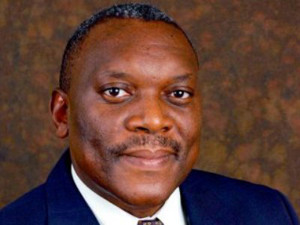
Controversial former state security minister Siyabonga Cwele's appointment as the new telecommunications minister has dismayed the industry, with concerns being raised over his previous tight focus on state security, and what this will mean for freedom within the sector.
Cwele will head up the newly-formed Department of Telecommunications and Postal Services, after president Jacob Zuma, in announcing his new Cabinet, effectively split the Department of Communications in two, creating a communications ministry and one to handle telecoms and postal services.
Yunus Carrim's stint as minister of the Department of Communications in the previous Cabinet came to an abrupt end last night, as Zuma appointed Faith Muthambi to lead the "reconfigured" communications ministry. However, it appears Cwele's department will take over as the ministry with the most clout within the ICT sector, but government is yet to clarify each department's new role.
Valuable sector
Zuma said the new ministry would "ensure the country derives more value out of the booming information communications and technology industry and the postal services sector". Cwele moves into the post from state security, a position he has held since September 2008, despite its renaming from intelligence in 2009.
Cwele is also a former chairman of the Joint Standing Committee on Intelligence, and also chaired the Parliamentary Social Services Committee. He has also spent time on the Communications Committee and the Budget Committee.
A qualified medical practitioner, Cwele completed an MBchB at the University of Natal and a postgraduate diploma in child health at the College of Medicine in South Africa. He practiced in the health sector between 1984 and 1994, when he was deployed to Parliament. As student, Cwele participated in anti-apartheid activities.
No glory
However, his tenure at the state security ministry was marred by several contentious missteps. In 2011, Cwele's wife, Cheryl, was convicted of operating an international drug syndicate - an activity that Cwele claimed to have had no knowledge of. He was also the driver of the controversial Protection of State Information Bill, known as the secrecy law.
ICT veteran Adrian Schofield notes Cwele "has not succeeded in his previous portfolio and is best known for his ex-wife's role as a drug dealer". He is also saddened that Carrim has been side-lined.
Carrim is widely credited with turning the former department around, and achieving several goals that had previously been left to languish. Dominic Cull, owner of Ellipsis Regulatory Solutions, says it is incredibly disheartening to have yet another telecoms minister, the sixth since SA became a democracy.
In the past 10 months, the former communications department made several inroads into achieving goals that had been on the backburner for some time. Of the 19 goals Carrim set the department on his appointment less than a year ago, 14 have been fully or partially met.
This includes rapidly getting key policies published, filling vital vacancies, connecting schools, and moving on spectrum. Cull says Carrim gave a sense of hope that the country would move forward in placing communications at the centre of the agenda.
Cull is concerned Cwele's focus will be on control rather than enablement. People from state security think a certain way, he notes.
Marian Shinn, the Democratic Alliance's shadow minister of communications, adds Cwele has no knowledge about the potential of ICT to economic growth and its challenges. "His knowledge comes from oversight of electronic surveillance and cyber security through the Ministry of State Security. I fear for our Internet freedom."
Share